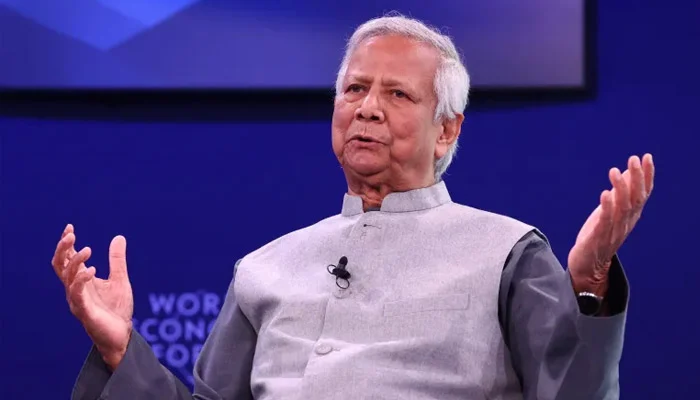Bangladesh’s interim government, which assumed power following a widespread uprising last year, issued a warning on Saturday, emphasizing the necessity of unity to “prevent the return of authoritarianism.”
In a statement released after a week of escalating tensions marked by rival parties protesting in the capital, Dhaka, the government asserted, “Broader unity is essential to maintain national stability, organize free and fair elections, justice, and reform, and permanently prevent the return of authoritarianism in the country.”
The South Asian nation, home to approximately 170 million people, has been embroiled in political unrest since former Prime Minister Sheikh Hasina was unseated by student-led protests in August 2024, bringing an end to her formidable 15-year tenure.
The caretaker administration is headed by chief adviser Muhammad Yunus, the 84-year-old Nobel Peace Prize laureate.
Yunus, who returned from exile at the urging of protesters, has stated his commitment to implementing democratic reforms before elections, which are constitutionally due by June 2026 at the latest.
“If the government’s autonomy, reform efforts, justice process, fair election plan, and normal operations are obstructed to the point of making its duties unmanageable, it will, with the people, take the necessary steps,” the caretaker government declared, without providing further details.
Yunus is scheduled to engage in discussions on Saturday with key political parties that have voiced opposition to the government this month.
The statement noted that the government has encountered “unreasonable demands, deliberately provocative and jurisdictionally overreaching statements,” which it claimed have been “continuously obstructing” its work.
Yunus’s team has confirmed that he will hold meetings with leaders of the influential Bangladesh Nationalist Party (BNP), as well as leaders of Jamaat-e-Islami.
Both parties have been actively protesting against the government.
No specific agenda has been disclosed, but the BNP, widely considered the front-runner in upcoming elections, is strongly advocating for polls to be held by December.
According to Bangladeshi media and military sources, Army Chief General Waker-Uz-Zaman also indicated this week that elections should take place by December, aligning with the BNP’s demands.
These would mark the first elections since Hasina’s flight to India, where she remains in self-imposed exile despite an arrest warrant to face trial for crimes against humanity linked to last year’s police crackdown on protesters, which resulted in at least 1,400 fatalities.



